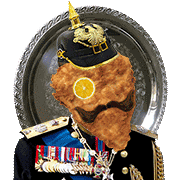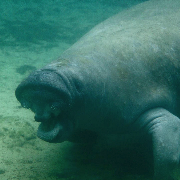|
Ramrod Hotshot posted:Is The Guns of August still worth reading? I'm interested in the origins of World War I and obviously it's considered the bible on that subject, but it was written over sixty years ago. Has anyone here read it? It's passable, but it was overshadowed by contemporary scholarship* and is very much surpassed by more recent stuff. It's readable, though. One thing I would say is to be a bit wary with some of the specific claims she makes. Every time I've had to tug on a thread that went back to Tuchman and then did some digging I've come up on problems caused by what I suspect was sloppy research on her part. I'll dig around to see if I can find an old write up I did of one, I've got a hazy memory that she basically didn't understand the German source she was working with and spun it out in a weird way. *Fisher's Germany's War Aims in the First World War most notably. God, I think that might have even come out before Guns of August. It's also a great example of a German title being so much better than what they translated it as. In German it's known as Griff nach der Weltmacht which translates as "Grab for world power" and quite succinctly sums up the main thrust of the Fischer thesis - that Germany's foreign policy in the two decades leading up to WW1 was unconscionably reckless because they were trying to catapult themselves into being a top-tier global power on the order of France, the UK, or the US and that recklessness directly lead to them both creating an explosive diplomatic situation and steering what could have been solvable conflicts towards a world war that they figured would help them come out on top.
|
|
|
|

|
| # ? Apr 25, 2024 10:36 |
|
I'd add Robert Massie's Dreadnaught as a surprisingly readable book for a seemingly niche subject that also provides really great background on the 20-30 years of Great Power competition that lead up to WWI. I don't know enough to speak to its scholarship (it's definitely more of a popular history than an academic one) but again just for background it was great, especially as an American-educated person where history class gives the Gilded Age/Belle Époque about 4 pages.
|
|
|
|
Kaiser Schnitzel posted:I'd add Robert Massie's Dreadnaught as a surprisingly readable book for a seemingly niche subject that also provides really great background on the 20-30 years of Great Power competition that lead up to WWI. I don't know enough to speak to its scholarship (it's definitely more of a popular history than an academic one) but again just for background it was great, especially as an American-educated person where history class gives the Gilded Age/Belle Époque about 4 pages.
|
|
|
|
Ramrod Hotshot posted:Is The Guns of August still worth reading? I'm interested in the origins of World War I and obviously it's considered the bible on that subject, but it was written over sixty years ago. Has anyone here read it? There are all sorts of problems with the scholarship of the guns of august but it is beautifully written, so I would recommend it on those grounds alone. I think that Kaiser Schnitzel is right to highlight the sleepwalkers, which is significantly longer and is on stronger scholarly ground than the guns of august, but also reads very well. personally, i would recommend hew strachen's The First World War: Volume I: To Arms for its overview of the origins the first world war. as a more indirect approach to the topic, with less impressive prose than christopher clark or barbara tuchman, you might find arno mayer's the persistence of the old regime interesting. That being said, neither the sleepwalkers or guns of august will give you the full scope of the debates involved in the outbreak of ww1, i think reading a few historiographical essays on the topic will give you some better grounding.
|
|
|
|
Kaiser Schnitzel posted:Guns of August is a good book and an easy read, but if you want a better book with more modern scholarship on how WW1 started, The Sleepwalkers by Christopher Clark is really excellent. The Sleepwalkers will have you screaming at the page in places. It's perfectly titled, because Clark really captures the way all of the eventual combatant nations just shuffled into catastrophe. It's a doorstopper, but it's excellently written.
|
|
|
|
Alternatively, Hardcore History’s massive multi-part WW1 podcast series is also really good
|
|
|
|
Thanks for the suggestions. I should emphasize I’m not a historian so im more interested in a well written popular history than an academic tome. The Sleepwalkers looks like more or less what I’m looking for.
|
|
|
|
blue squares posted:Alternatively, Hardcore History’s massive multi-part WW1 podcast series is also really good I might just do this haha
|
|
|
|

|
| # ? Apr 25, 2024 10:36 |
|
I particularly liked The War That Ended Peace by Margaret MacMillan. Cheers to the person who told me that MacMillan clearly didn’t do her research, since Europe was not actually at peace before 1914.
|
|
|












